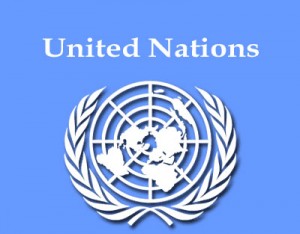By Sami Zaptia:

London, 9 March 2018:
In the section on violations of human rights and international humanitarian law, the UN Libya Experts Forum report said that ‘‘The situation of human rights in Libya continues to deteriorate, highlighted by the UN High Commissioner for Human Rights at the end of his visit to Libya on 12 October 2017.
In the absence of a functioning security and justice sector, policing and detention tasks are delegated to state-affiliated armed groups. An increasing number of armed groups subscribing to the Salafi-Madkhali ideology are in charge of the security sector in Libya. They are also taking control of social and religious institutions.
Arbitrary detentions, kidnappings and torture: The case of the Special Deterrence Force in Mitiga
Based on interviews with former detainees, local and international human rights organizations, the Panel estimates the number of detainees in the SDF detention centre in Mitiga at approximately 1,500 prisoners. Individuals arrested by armed groups loyal to the GNA in Tripoli and other cities in western Libya and southern Libya, are taken to the SDF detention centre in Mitiga.
The SDF is involved in the kidnapping and arbitrary detentions of Libyan citizens and foreigners, based on the ground of affiliation with terrorist organizations, trafficking, and other criminal activities. Interviews with former detainees in Mitiga revealed that in many cases, accusations against them were unfounded and lacked due judicial process. Depending on the cases, kidnappings are politically or financially motivated.
Former detainees told the Panel that they were victims of extortion, torture and mistreatment. Testimonies referred to cases of deaths in prison due to deteriorated health conditions of the detainees, aggravated by torture and deprivation of medical care. In several cases documented by the Panel, families were not informed of the detention of their relatives, and the prison keeps no prisoner records.
Prison commanders are directly involved in torture practices. Several former detainees mentioned two in particular: Khaled al Buti and Mahmud Hamza.
The Case of the LNA
The LNA is still involved in kidnappings and arbitrary detentions of Libyan citizens, including politicians, journalists, activists and religious figures. Victims and their relatives said that kidnappings were conducted by men in LNA uniforms, and in some cases driving military
vehicles. Victims are usually transferred to informal detention centres such as farms and schools located in Benghazi and its outskirts.
In Benghazi, al-Kuweifia is the only official detention centre. In the military section of the prison no cases of torture were reported. However, the Panel received reports of rape and torture in al-Kuweifia section under the control of the Internal Security Apparatus.
The case of the informal detention centre situated near Abd al-Razaq al-Shaikhi School, in the area of al-Hadaeq, is of particular concern. The Panel received testimonies from the families of several detainees. The centre is controlled by Alaa al-Biha, from the Warfalla tribe and affiliated with the LNA. According to the same testimonies, al-Biha is receiving orders from a former Special Forces commander Mahmud al-Warfalli.
Extrajudicial Killings
The case of al-Abyar
Eastern Libya has witnessed more extra-judicial killings, including one mass extra-judicial killing. Testimonies indicated to the Panel that these practices continue to be widespread.
On 26 October 2017, the bodies of 36 men were found in the area of al-Abyar, located around 50 kilometres east of Benghazi. Six victims were identified.25 Some victims were kidnapped by LNA-affiliated groups in al-Laythi and Hay al-Salam neighbourhoods in Benghazi. One of the victims had previously been detained in al-Kuweifia section under the control of Salim al-Ferjani of the Internal Security Apparatus before being released. The LNA General Command ordered an investigation on 28 October 2017. Its results are still expected.
The Panel is investigating cases of extra-judicial killings in western Libya, notably during the attack against Warshefana in early November by GNA-affiliated forces.
Attacks targeting civilians
On 30 October 2017, an airstrike conducted against the city of Derna killed 16 civilians, including women and children. The LNA denied responsibility for the attack. Based on the information available to the Panel the LNA’s air force lack the capacity to conduct targeted air strikes after dark, it seems likely that a foreign air force conducted the air strike.
Political and religious repression by Salafi groups in Libya
Salafi-Madkhali groups are specializing in the control of detention centres and intelligence services. They support different political factions but have been collaborating and exchanging information on individuals suspected of affiliation with “terrorist organizations”.
The Panel received testimonies and reports of human rights abuses against individuals accused of links with terrorist organizations. Segments of the Libyan population seem particularly targeted, notably populations displaced from Benghazi to western Libya, families with members belonging to revolutionary or Islamist armed groups such as the BRSC and also Sufi scholars and followers.
The anti-terrorist narrative developed by those groups is used to capture financial and political support provided by the GNA and the LNA, and to gain international legitimacy.
Prostitution, rape, auctions, and enslavement of migrants
In 2016, Italy dismantled one of the most active prostitution networks. Its web spanned from Nigeria to Italy via Libya.29 So far, the investigation has revealed the involvement of a group of Nigerians and Libyans, reportedly using warehouses in Sebha and Tripoli. These places were dedicated to prostitution, where young Nigerian girls were sexually abused. A woman, called the “Mama”, a Nigerian based in Sicily, managed the organization and revenues from trafficking. The money generated through sexual exploitation was transferred directly to the “Mama” as a reimbursement of the girls’ transportation to Sicily. The Panel is investigating other cases of sexual abuse and exploitation of migrants in Libya.
Young migrants interviewed in Italy also reported they were systematically raped in the Libyan detention centres. In one such detention centre referred to by migrants as the “White House” (see paragraph 114), the African and Libyan guards selected girls for collective raping.
According to Libyan human rights activists interviewed by the Panel, the selling of migrants has been a common practice for decades in Libya. Because the clashes in Sabratha obstructed the main gateway to Europe, smugglers resorted to auctioning the migrants at the best price.
By the end of November 2017, out of the 18,000 migrants who were detained in Ahmad al- Dabbashi’s camps, IOM Libya had relocated 14,000 people to the Tripoli and Gharyan detention centres.








